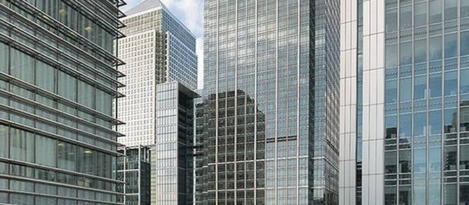July 21, 2016
Offices not yet smart enough to support new ways of working 0
 Employees believe their workplace is not making best use of latest technology, but expect this to improve as remote work begins to provide both quality of life and productivity benefits. In the latest Future Workforce Survey conducted by Dell and Intel, nearly half of global employees believe their current workplace is not smart enough, while 42 percent of millennial employees say they are willing to quit their job if technologies are not up to their standard. The research suggest that the addition of collaborative tools and innovations such as internet of things (IoT) and Virtual Reality (VR) will soon become vital to the workplace. According to the poll of nearly 4,000 full-time employees in ten countries, over half (57 percent) believe they will be working in a smart office within the next five years, while 51 percent believe that better technologies will make face-to-face meetings redundant within the next five years.
Employees believe their workplace is not making best use of latest technology, but expect this to improve as remote work begins to provide both quality of life and productivity benefits. In the latest Future Workforce Survey conducted by Dell and Intel, nearly half of global employees believe their current workplace is not smart enough, while 42 percent of millennial employees say they are willing to quit their job if technologies are not up to their standard. The research suggest that the addition of collaborative tools and innovations such as internet of things (IoT) and Virtual Reality (VR) will soon become vital to the workplace. According to the poll of nearly 4,000 full-time employees in ten countries, over half (57 percent) believe they will be working in a smart office within the next five years, while 51 percent believe that better technologies will make face-to-face meetings redundant within the next five years.











 UK growth had already eased from around 3 percent in 2014 to around 2 percent before the EU referendum due primarily to slower global growth, but the Brexit vote to leave the EU is likely to lead to a significant further slowdown. UK GDP growth is forecast to decelerate to around 1.6 percent in 2016 and 0.6 percent in 2017 according to
UK growth had already eased from around 3 percent in 2014 to around 2 percent before the EU referendum due primarily to slower global growth, but the Brexit vote to leave the EU is likely to lead to a significant further slowdown. UK GDP growth is forecast to decelerate to around 1.6 percent in 2016 and 0.6 percent in 2017 according to 
 The 21st Century has seen an explosion of self employment in the UK, and most people who have become self employed have done so for positive reasons, claims a new report from the UK Government’s Office for National Statistics. According to the
The 21st Century has seen an explosion of self employment in the UK, and most people who have become self employed have done so for positive reasons, claims a new report from the UK Government’s Office for National Statistics. According to the 
 A coalition of twenty major European telecommunications firms has come together to drive the rapid creation of a continent wide 5G network and warn national Governments and the EU of the dangers of over-regulation. The seven page document entitled the
A coalition of twenty major European telecommunications firms has come together to drive the rapid creation of a continent wide 5G network and warn national Governments and the EU of the dangers of over-regulation. The seven page document entitled the 



 According to
According to 
 Just one in three IT decision makers believe advances such as cloud-based solutions, big data and wearable tech will be available in their industry within the next 12 months, according to a new study from Capita. Although the report – Trends vs Technologies – has yet to be published, the firm has released some of its findings. Based on a survey of IT professionals in the insurance, finance, legal services and manufacturing sectors, the study analyses nine key organisational trends and the implementation of related technology. The report claims that while many decision makers describe a tech trend as being relevant to their industry, several barriers to implementation mean solutions are not yet ready and in many cases might be lagging behind consumer take-up of the new technology. The trends named in the report are Big Data, Digital Workplace, Artificial Intelligence, Internet of Things, Wearable Tech, Robotics, Cloud Based Solutions, 3D Printers and Virtual Reality.
Just one in three IT decision makers believe advances such as cloud-based solutions, big data and wearable tech will be available in their industry within the next 12 months, according to a new study from Capita. Although the report – Trends vs Technologies – has yet to be published, the firm has released some of its findings. Based on a survey of IT professionals in the insurance, finance, legal services and manufacturing sectors, the study analyses nine key organisational trends and the implementation of related technology. The report claims that while many decision makers describe a tech trend as being relevant to their industry, several barriers to implementation mean solutions are not yet ready and in many cases might be lagging behind consumer take-up of the new technology. The trends named in the report are Big Data, Digital Workplace, Artificial Intelligence, Internet of Things, Wearable Tech, Robotics, Cloud Based Solutions, 3D Printers and Virtual Reality.
 The overwhelming majority of UK employees (81 percent) are working beyond their contracted hours, claims a report from recruitment firm
The overwhelming majority of UK employees (81 percent) are working beyond their contracted hours, claims a report from recruitment firm 










July 20, 2016
We need to keep a more open mind about open plan office design
by Maciej Markowski • Comment, Facilities management, Workplace design
(more…)